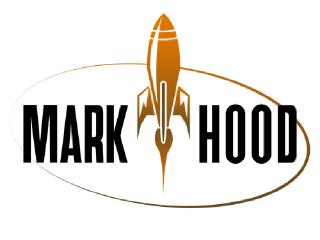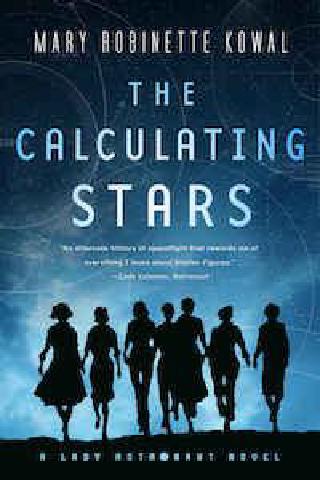The Calculating Stars by Mary Robinette Kowal
Each Friday, I intend to highlight a book I’ve recently enjoyed and want to share with you. I figure that a Friday is the best time to do this as you’ll have the whole weekend to really get into it.
A note on the links: they’re affiliate links in some cases, which means that if you click on them and then buy the book, I might get a small commission. In any case the price you pay does not vary, I don’t get to know who bought what, and none of your personal data is shared with me.
And none of the recommendations are paid for: these are all books which I personally have bought, enjoyed and want to share - no-one is asking me to do this.
Once again I find myself recommending a series of books, although I’ve only read the first one so far. I’m part-way through book two now though and it’s as good as the first.
What I’m talking about is The Calculating Stars, first book in the Lady Astronaut series by Mary Robinette Kowal. The second and final book in the series is The Fated Sky. (Is it a series if there are only two books? Amazon seems to think so.)
From the synopsis of book one:
On a cold spring night in 1952, a huge meteorite fell to earth and obliterated much of the east coast of the United States, including Washington D.C. The ensuing climate cataclysm will soon render the earth inhospitable for humanity, as the last such meteorite did for the dinosaurs. This looming threat calls for a radically accelerated effort to colonise space, and requires a much larger share of humanity to take part in the process.
Hopefully from that you can gather that this is a Science-Fiction book, and an alternative history one at that. Imagine starting the space race a decade early, with all of the nations of the world united to work together rather than competing. Now remember that it was before the Civil Rights movement in the US, women were barred from the military and positions of authority and imagine how that would shape things.
If you’ve read Hidden Figures or seen the movie, you’re familiar with how women were employed as ‘calculators’, allowed to do the routing and rote mathematical work but not required (or even allowed) to work as scientists or engineers. In The Calculating Stars we follow Elma York - one woman who despite her Phd and flying experience shuttling planes around during the war is under-utilised, employed as a calculator when she dreams of voyaging into space. On paper she’s the perfect astronaut, except for her gender (something which ironically should make her more suitable, not less - as the book explains). She quickly discovers she is not alone among the women working towards the goal of space, and begins to agitate for change. Many reviews picked up on the similarity to the movie, and even the book’s cover is reminiscent of the movie poster , but it’s far from just a re-dressing of the same story.
Politically charged without being preachy, and a wonderfully researched view of a space program that almost was, I absolutely loved this book. Even if you’re not a fan of Sci-Fi, the human relationships are glorious and occasionally heartbreaking, the world Kowal imagines is supremely realistic and far from the ‘Humanity Pulls Together’ utopia a lot of Science Fiction often inhabits. Race relations are front and centre given the time period, gender issues also - and you do wonder whether the efforts to save humanity are going to truly benefit all of humankind… or just the white, male portions.
Our protagonist Elma is far from perfect too, she’s almost blind to issues of race at the start and only slowly comes to realise that it’s not just women that are held back. As she fights to be included in the astronaut program she ends up as the very public face of the push to space. Struggling with almost crippling anxiety when forced to speak in public, she soldiers on, and ends up being christened ‘The Lady Astronaut’ - a title that many hold over her as an insult.
Still not sure if it’s for you? How about if I told you that these two books are actually prequels to a short story Kowal wrote in 2012, which won a Hugo award? And what if I told you that short story was available to read absolutely free?
It doesn’t spoil the books to know ‘how it all ends’ - in that story Elma is living in our first Mars colony, all but retired when she’s offered one final chance to go into space for the good of all humanity. The short story brought a lump to my throat and a tear to my eye, and I knew I’d be buying the novels as soon as they came out to see how she (and the rest of us) got there.
Once again I’ve picked these as much for their remarkable story as their brilliant writing. Reading them has again let me ’level up’ my own writing skills, watching how Kowal weaves a world around fully-realised characters is inspiring.
Read the amazing short story first, if you’re interested - or save it until last.
Click the images of each book to be taken to your store of choice, or use the links below.



